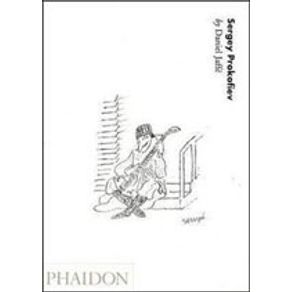'Sergey Prokofiev '(1891-1953) composed some of this century's most widely loved music, be it the ballet "Romeo and Juliet" or his work for children, "Peter and the Wolf". Yet due to his itinerant lifestyle and the secrecy that cloaked his final years in the USSR, he remains one of the least written about or understood musicians of this century. At the St Petersburg Conservatory he soon gained notoriety as a gifted enfant terrible with his fiery piano-playing and 'modern' compositions. He became friends with many of Russia's leading cultural figures including Maxim Gorky; equally crucial were his relationships with the impresario Sergey Diaghilev and fellow composer Igor Stravinsky, who admired but were wary of Prokofiev's precocious talent.Prokofiev left Russia after the 1917 Revolution, and bedazzled western audiences with his hard-edged, virtuoso performances on the piano and exuberantly colourful scores such as the opera "The Love for Three Oranges" and his Third Piano Concerto. He then astonished the world by returning to the USSR in 1936 at the height of Stalin's notorious purges. Initially cosseted and feted by the Soviet state, Prokofiev was profoundly shaken by the arrest of several leading cultural figures as well as some of his friends. Against this terrible background Prokofiev composed some of his greatest scores, the First Violin Sonata and his Symphonies Nos.


